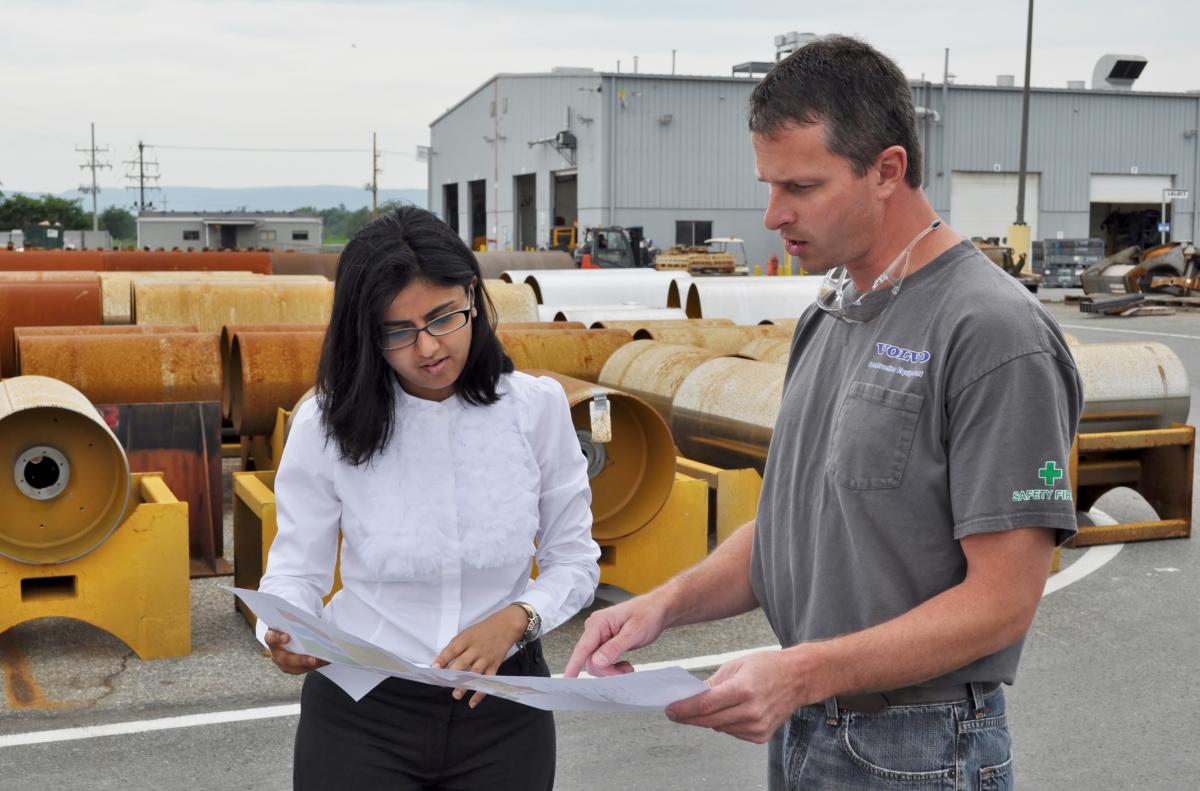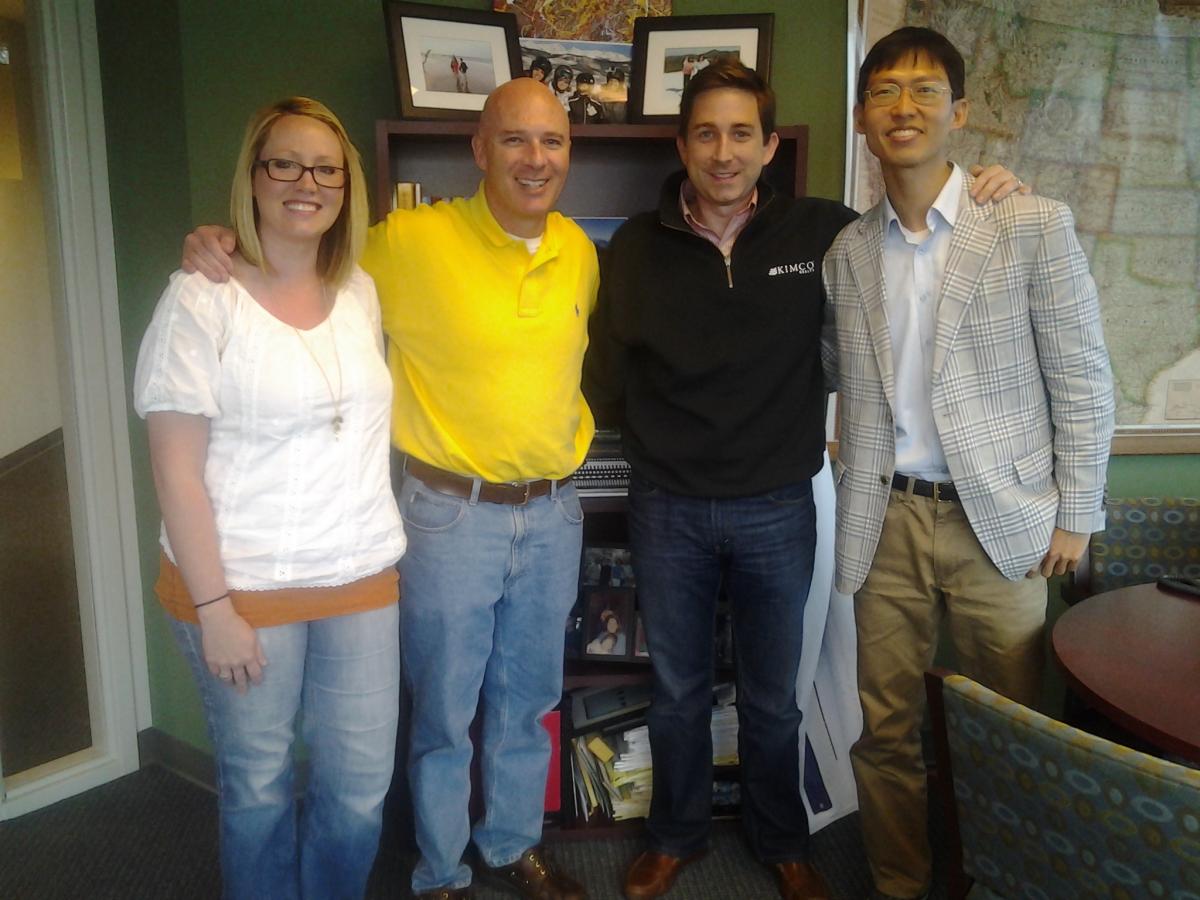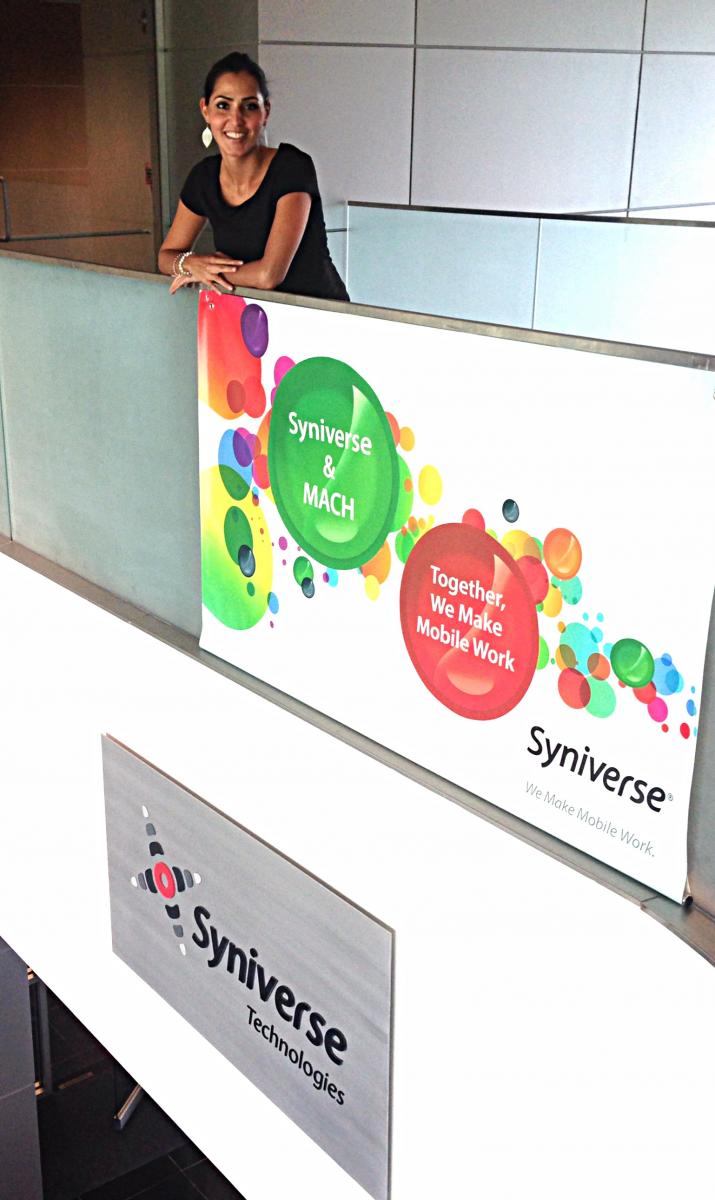EDF Climate Corps fellow | September 13, 2013
This year, EDF Climate Corps selected 18 graduate students from Columbia University to work deep within leading organizations to help them further their sustainability and energy management initiatives. Read below the stories of three of these Columbia students, why they wanted to join the program, how they helped their host organizations and what they learned this summer. If you’d like to join EDF Climate Corps for a similar experience next summer, visit our Become a Fellow page.

Name: Madhura Karnik
Home Country: India
Host Organization: Volvo Construction Equipment
School: Columbia University
Q: What is one interesting fact about you?
A: I’m an outgoing person. I love interacting with people and learning new things through conversations.
Q: Why did you want to join EDF Climate Corps?
A: Basically, it ties back to my passion of integrating environmental sustainability within the operational management systems of any organization that I will work for. Being an environmental professional, you can never work by yourself, so joining EDF Climate Corps was a chance for me to work with cross-functional teams, gain project management experience and develop a good professional network.
Q: What are you working on this summer?
A: This summer, I’m mostly focusing on energy mapping for my host organization. Based on this information, I will be identifying key energy efficiency projects that the organization can consider both on a short-term and long-term basis. I’ll likely be looking at lighting systems, power management and increasing the potential of their existing building automation system (BAS), both in the production and non-production areas.
Q: What is one thing you have learned this summer?
A: I’ve learned so many things, but “project management” and “people management” are the most important. Right now, I am working on several projects with different people. My job here is more than just identifying things while sitting at my desk. I’m out there for most of the day interacting with different people and collaborating with them for the successful completion of this assignment.
Q: What is the mark you want to leave on the world?
A: The mark that I want to leave is definitely in managing resources. We have valuable resources, and we need them now and in the future. Hence, we definitely need to manage them effectively, and I hope to help with that.

Name: Linus Ik-Pyo Hong
Hometown: Seoul, South Korea
Host Organization: Kimco Realty
School: Columbia University
Q: What are you working on this summer?
A: I am focusing on energy efficiency at one particular Kimco shopping center, Westlake. While Kimco has already invested in improvements for common areas, it hasn’t been able to significantly address energy consumption in the leased spaces due to split incentives in tenant lease structures. This is problematic because a big chunk of the energy use at open-air shopping centers, around 85 percent, happens in the tenant spaces. My project is to find ways to overcome this split incentive, and if Kimco finds it successful, it aims to replicate this pilot project elsewhere within its portfolio.
Q: What is the most difficult part about tackling this project?
A: The challenging part for me is, in the end, tailoring my recommendations for Kimco. I know several approaches to energy efficiency financing and many ways to address the split incentive, but I will need to aggregate all of this information and make it presentable for the senior management as well as other stakeholders.
Q: Have you found ways to overcome this?
A: I have been organizing conference calls with industry leaders and specialists, ranging from public agencies to law firms, that have published the energy efficiency financing information and successful case studies I’ve learned of. It always helps to get insights from people who have had hands-on experience in the field and are able to share lessons learned.
Q: What is the best piece of advice you’ve received from your supervisor?
A: I’ve been working very closely with my supervisor, Will Teichman. From the very beginning of my fellowship, he has taught me about the project and the company. We also flew to our project site in San Francisco to participate in the energy audit, and he walked me through the energy conservation measures implemented in the common area. Having him explain the context surrounding my fellowship and show me innovative approaches he initiated for the company’s sustainability has greatly helped my work.
Q: What is the best part of working at Kimco Realty?
A: Kimco is a leader of sustainability in the industry and is committed to pursuing a variety of sustainability initiatives, one of them being aligning landlord-tenant interests in the tenant space at Westlake. I feel very excited and motivated to be part of the process. I also borrowed a bike from my colleague and enjoy biking to work every day.

Name: Mona Benisi
Home Country: Iran
Host Organization: Syniverse
School: Columbia University
Q: Why did you join EDF Climate Corps?
A: For me, the main reason I selected this fellowship was because I wanted an opportunity with a specific project and a specific deliverable to hand in. EDF Climate Corps is a well-thought-out program with training provided, specific work plans, check-in calls and goals for achieving results and making an impact in a short time. I also was attracted by the EDF Climate Corps Network possibilities and being able to come into contact with different students and professionals from across the country -- from whom I will be able to learn more than just the insights I gained in my fellowship.
Q: What are you working on this summer?
A: Syniverse has a strong commitment to environmental stewardship and has set 10 global 2015 Carbon-Reduction Goals, which established a number of ambitious sustainability targets. During my fellowship, I focused on designing initiatives that contribute toward meeting Syniverse’s 2015 Carbon-Reduction Goals. Specifically, I tackled different areas, such as reducing paper waste, decreasing supply chain emissions, developing and implementing an employee engagement strategy and assessing how Syniverse can further enhance its initiatives toward becoming a sustainability leader.
Q: What is the most difficult part of tackling that project?
A: I feel that the company has so much potential, in terms of achieving its current goals and beyond these in engaging in further sustainability initiatives. Therefore, the biggest challenge is to try to kick off some activities to achieve current goals and try to move toward sustainability leadership.
Q: What is one thing you’ve learned this summer?
A: It is one thing to be educated about sustainability or specific energy efficiency, but it is another to know how to communicate and evoke debate and thought around these topics in organizations. A key learning is always showing the business case for and bottom-line business advantages of sustainability.
Q: What is the mark you want to leave on the world?
A: As far as my professional life: I want to dedicate myself to doing what I enjoy, what I am enthusiastic about and what I sincerely believe in.
This post is a part of our "Interviews with Tomorrow's Leaders" series. Stay tuned for more interviews with our 2013 EDF Climate Corps fellows!
About EDF Climate Corps
EDF Climate Corps (edfclimatecorps.org) taps the talents of tomorrow’s leaders to save energy, money and the environment by placing specially-trained EDF fellows in companies, cities and universities as dedicated energy problem solvers. Working with hundreds of leading organizations, EDF Climate Corps has found an average of $1 million in energy savings for each participant. For more information, visit edfclimatecorps.org. Read our blog at edfclimatecorps.org/blog. Follow us on Twitter at twitter.com/edfbiz and on Facebook at facebook.com/EDFClimateCorps.